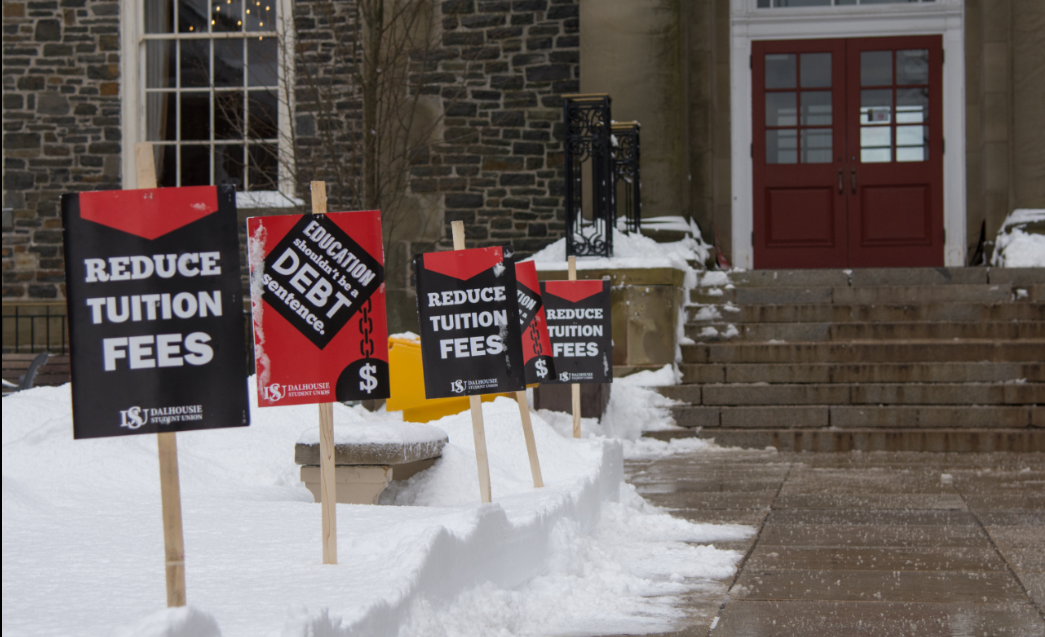Each year, Dalhousie’s Budget Advisory Committee (BAC) presents a report on the University’s budget for the upcoming year. The BAC report details what faculties will be receiving tuition hikes, which services will see decreased operating budgets, and compares Dalhousie’s fees to other large Canadian universities.
On February 9th, the BAC released an updated version of their Draft Operating Budget Plan for 2016-2017.
This draft means that students can still have a chance to propose amendments to the plan, to voice their opposition or their support before the plan is finalized.
However, sitting down and reading through this report can be a bit dry. Below, you will find a condensed, simplified version of some of the biggest changes proposed by the BAC for next school year.
The heavy-hitters:
- 3% tuition increase across all programs
- 5% annual increases for the Engineering, Pharmacy and Agriculture faculties
- 5% ($7.1 million) budget reduction to Faculties and service units
- Spending $1.5 million in reserve funds to balance the budget
- Estimated expenditure increases of $15.1 million.
Reasons given for tuition increases:
- 3% of Dal’s revenues comes from a combination of Provincial Government grants and tuition
- Provincial Government grant- 52.5%
- Tuition- 37.8%.
- Between 2011 and 2014, the Provincial Government grant decreased by 10%
- Since then, it has only been increasing by 1%/year
- A Memorandum of Understanding (MOU) with the province determines university funding and limits tuition fee increases- it will allow for an overall increase of 3% in 2016-17
- Intake of new-from-high-school students decreased by 10% overall in 2015
- Enrolment in the Faculty of Arts and Social Sciences (FASS) entering class of Fall 2015 was 22.8% lower than in Fall 2014
- FASS will receive $500,000 in special response funding in the 2016-17 budget to help with these lower enrolment figures
Why the larger increases for certain faculties?
- As of April 2015, the province allowed Dal to raise fees for specific programs if their tuition rates were lower than those charged by other universities for similar programs
- Tuition for all undergraduate Engineering and Pharmacy courses will be raised by 5% each year for three years (a 15% increase by 2018), in addition to the 3% general fee increase
- Tuition for undergraduate courses taught on the Agricultural Campus will increase by 6.3% per year (18.9% over a three year period), in addition to the 3% general increase)\
Facilities Renewal
- $1.0 million increase in Facilities Renewal budget for Halifax campuses
- 3% increase in the Facilities Renewal auxiliary fee for all students (will rise from $84.35 to $86.90 per term)
- This increase will give Facilities Renewal an additional $91,000
- The increase in funds will help to operate the university’s 150 buildings in Halifax and Truro
- Buildings total 5.4 million square feet
- Replacement value of almost $1.5 billion
Technology
- Suggested investment of $500,000 to increase network capacity
- The number of electronic devices used at the university has grown so significantly that, without additional investment, the University will reach its network capacity in 2017
The Operating Budget Plan will be released later this term. Written feedback about the BAC Report should be sent to BAC@dal.ca.


Recent Comments